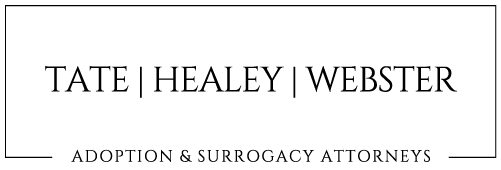The Adoption Tax Credit can be an important part of helping our clients adopt whether they are adopting through the foster care system, domestically, or internationally. An adoptive family can apply the Adoption Tax Credit toward their federal tax liability when they file their tax return. This means that the applied credit can reduce what they owe in federal income taxes for the year. It is substantial– $14,300 for 2020.
Who qualifies for the Adoption Tax Credit 2020?
Adoptive parents qualify for the Adoption Tax Credit if you adopted a child (except your spouse’s child) and paid out-of-pocket expenses relating to the adoption. The amount of the tax credit you qualify for is directly related to how much you spent on adoption-related expenses. Income can also be excluded as taxable through an employer-provided adoption benefits program. Both a credit and an exclusion may be claimed for the same adoption; however, both cannot be claimed for the same expenses.
What Expenses are Covered Under the #Adoption Tax Credit?
Qualified Adoption Expenses are allowed under the Adoption Tax Credit and include any expenses necessary for the adoption. Examples of qualified expenses are court fees, home study, lawyer fees, medical examinations/physicals, travel expenses (meals, lodging, airline, gas), agency fees, dossier fees, and any other fees that are directly related to the adoption. Living expenses do not count.
When to Apply for the #Adoption Tax Credit?
International and foster care adoptions must be finalized before you can apply for the Adoption Tax Credit. Expenses for domestic adoptions that are not yet final can be taken the year after the expenses are paid or you can wait until the adoption is final.
If you do not use all of the credit in the first year you can carry it forward for up to 5 years.
How Does the #Adoption Tax Credit Work with Special Needs Adoptions?
If you adopt a child with special needs, you may be entitled to claim the full amount of the adoption credit even if you did not have expenses. Each state has different criteria that qualify a child as “special needs”. The special needs declaration must come from the state in which the adoption was finalized. In order to qualify as a special needs adoption, you must have a signed adoption “Subsidy Agreement” with the state.
No international adoption is considered special needs for IRS purposes, so the Adoption Tax Credit will be for the amount of your qualified adoption expenses only.
What Documentation Do I Need To Keep for the IRS for the Adoption Tax Credit?
-
Final Judgment of Adoption (all adoptions)
-
Adoption Assistance Eligibility Determination (Subsidy Agreement) that declares the child special needs, if claiming credit for a child declared special needs by your state through foster care (foster adoptions)
-
A home study/placement agreement completed by an authorized placement agency (all adoptions except foster)
-
All documentation of paid qualified expenses (all adoptions except foster)
-
All documents must be signed and dated. (all adoptions) The IRS will not accept any Home study/Placement agreement, Judgment of Adoption, or Subsidy agreement/Eligibility agreement without it being signed and dated by the proper authorities.
